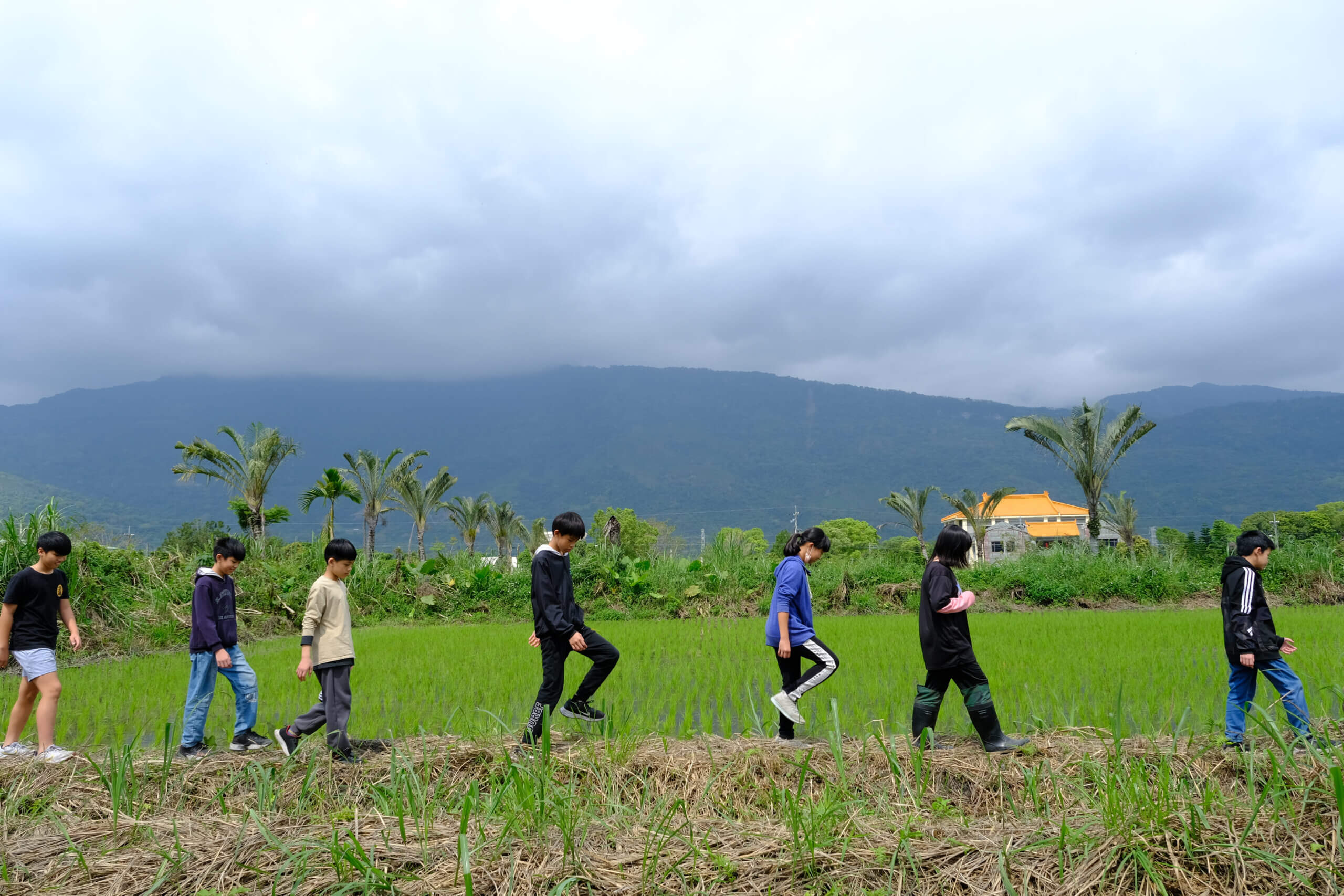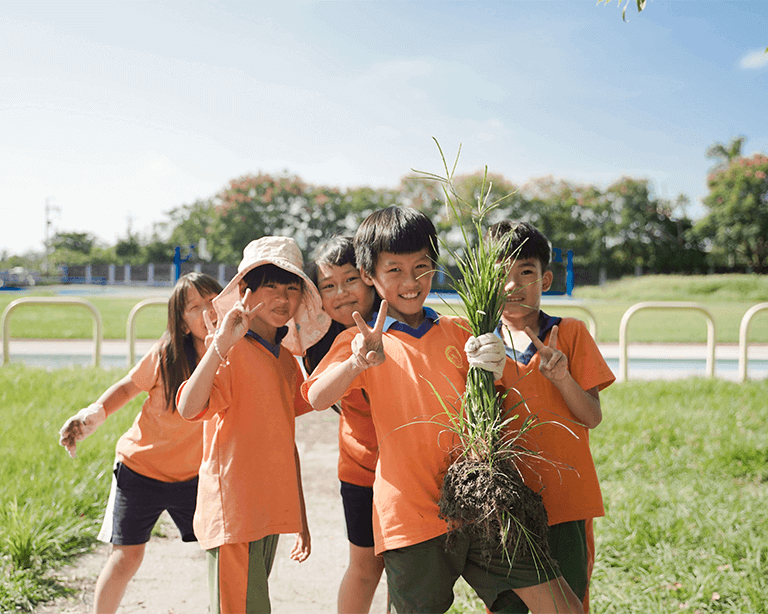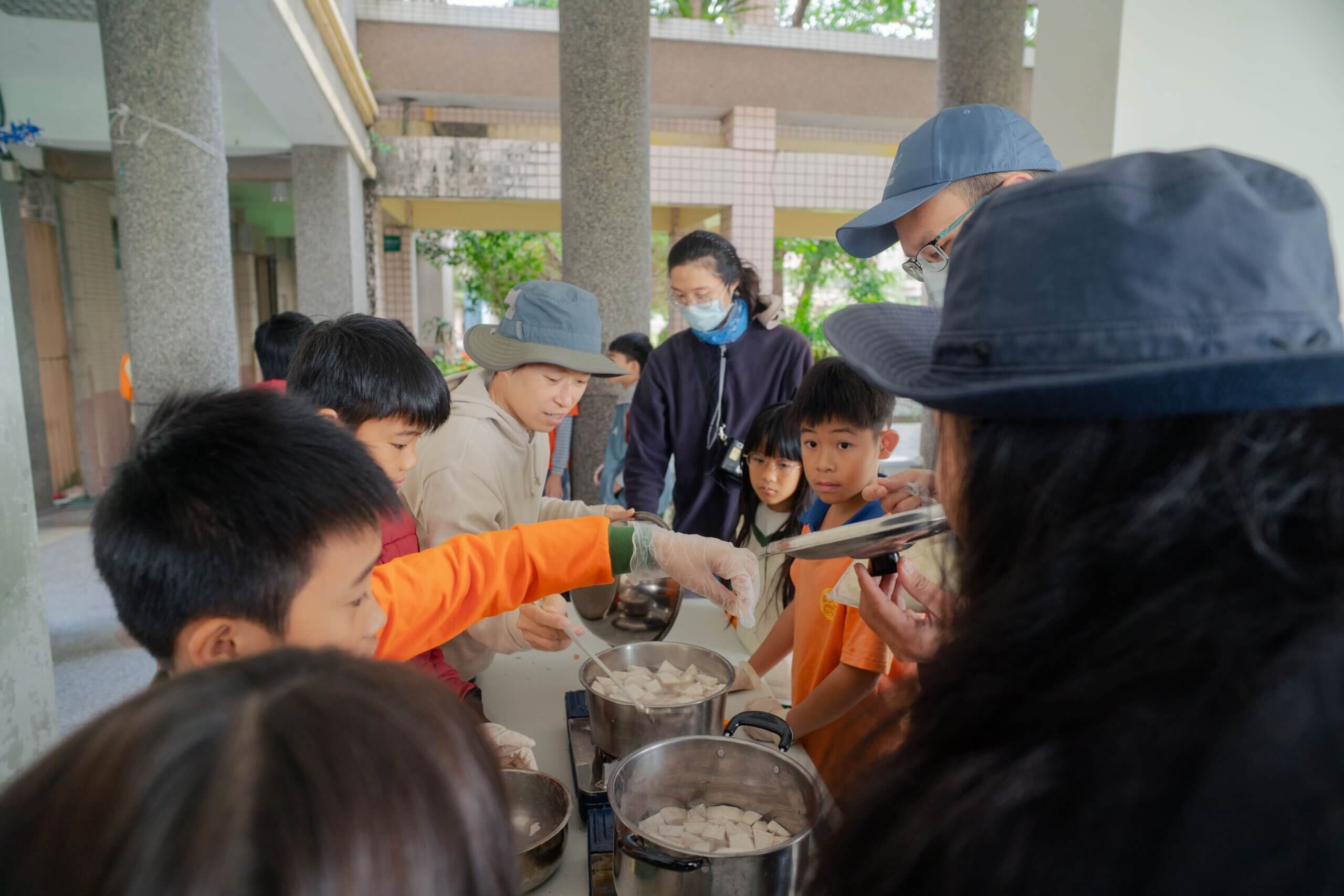WT Group 「Courses of Agricultural Education」 in Hualien
Cultivating awareness of climate change through school farmland: Breaking free from conventional learning
WT is committed to environmental sustainability and education.
Since 2021, the company has participated in the “Shennong Project” initiated by the Taiwan Hao Foundation. This cross-sector collaboration linking schools, businesses, communities, and farms, has become a powerful partnership in promoting sustainability.At Hualien Huareng Elementary School, the Shennong Project’s school farmland curriculum is built upon three core pillars: organic food, land education, and local identity. Teachers guide students to learn through direct engagement with the land, breaking away from rigid, textbook-based instruction. This approach fosters curiosity and opens a gateway to self-directed learning and knowledge exploration.
From discovering the ecosystem of soil organisms and understanding how plants grow and reproduce, to harvesting crops and tasting fruit-based dishes and herbal teas, students embark on a full sensory learning journey. They also create eco-friendly fertilizers using kitchen waste, plastic bottles, and molasses, and grow crops using these homemade inputs. The curriculum even expands to critical discussions on greenhouse gas emissions and debates on how carbon-conscious living can contribute to achieving the Sustainable Development Goals (SDGs).
Hualien Huareng Elementary School「Courses of Agricultural Education」
【2024 Huareng Elementary School Crop List】
Lower grades grew: cherry tomatoes, cherry radishes, crown daisies, and sugar snap peas.
Middle grades cultivated: Mexican marigold, mint, violas, pentas, and edible roses.
Upper grades planted: taro (betel nut heart variety), tomatoes, potatoes, and scallions.
The betel nut heart taro was selected as the featured crop of Huareng Elementary’s Shennong Elementary School. Under the guidance of the farming teacher, students prepared a classic taro dish “Sweet Taro Soup” as a highlight of the Shennong recipe series. The dish was so popular that it was quickly devoured by the children the moment it was served.
Wu Chong-Ge, the farming teacher for lower grades, shared: “At the beginning of the course, the children’s attention span was quite limited. However, by the second half of the semester, even first graders began recognizing roots, stems, leaves, flowers, and fruits. Their learning and progress were clearly noticeable. Some children who usually refused to eat certain vegetables—like basil or tomatoes—surprisingly began to try them during the Shennong class. This reflects how the school farmland experience fosters breakthroughs and growth in children.”
Chuang Chuan-Fen, the farming teacher for upper grades, noted: “In 2024, we made a bold move by holding a debate on global warming and climate change, with students taking both sides of the argument. To our surprise, it had a powerful impact—children learned to listen attentively to opposing viewpoints and respond thoughtfully after reflection. The purpose of the debate was to help students develop skills in research, listening, critical thinking, and value formation. Through the Shennong course, we are building pathways for expression and introspection.”
Online Reading Program | Offical Website 🔗 To promote
WT Group 「Courses of Agricultural Education」 in Hualien




